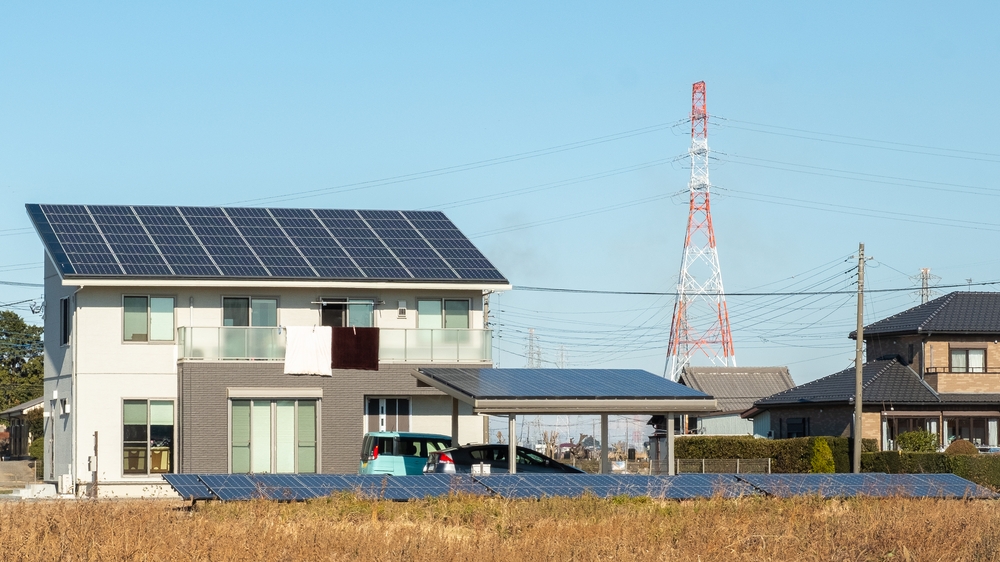POLICY
Energy and Climate Cooperation Between the European Union and Japan – Time to Change Gears
February 19, 2025
The European Union (EU) and Japan have a long tradition of cooperation in the climate and energy fields. What had been described as a “partnership in the making” in 2007 has by now developed into a broad and comprehensive set of initiatives spanning across many issues in the climate and energy domain. It is now time to put these elements into practice.
Over the last decades, the European Union (EU) and Japan have developed a robust and comprehensive partnership covering various energy and climate issues. This collaboration has been marked by significant milestones in energy research, policy dialogue, and technological innovation: Since the early 2000s, both jurisdictions have worked together on subjects like renewable energy deployment, energy storage, and carbon capture and storage (CCS). More recently, this cooperation has expanded to include supplies of liquefied natural gas (LNG), hydrogen technologies and fuel cells. These efforts have been formalized through agreements such as the 2017 Memorandum of Cooperation on the global LNG market and the 2019 EU-Japan Energy Dialogue.
The cooperation is facilitated by similar political strategies on the one hand and similar energy supply needs on the other: Both the EU and Japan are major importers of fossil fuels, making them particularly vulnerable to global crises. This vulnerability was starkly highlighted by Russia's invasion of Ukraine, which triggered a severe energy crisis in Europe and caused significant energy and economic impacts to Japan’s Green Transition initiative. According to figures from the International Energy Agency (IEA), the EU's total energy consumption in 2022 was approximately 1,600 million tonnes of oil equivalent (Mtoe), with a significant portion still reliant on imports. Japan, similarly, consumed around 430 Mtoe, heavily dependent on imported LNG and oil.
The crisis has brought the EU and Japan closer, leading to agreements to reduce imports of Russian gas and increase Japan's LNG supplies to the EU. This collaboration underscores the importance of their partnership in navigating the volatile political and economic landscape. The two partners are well-advised to expand and implement their joint activities to enhance energy security and sustainability.
Over the last decades, the European Union (EU) and Japan have developed a robust and comprehensive partnership covering various energy and climate issues. This collaboration has been marked by significant milestones in energy research, policy dialogue, and technological innovation: Since the early 2000s, both jurisdictions have worked together on subjects like renewable energy deployment, energy storage, and carbon capture and storage (CCS). More recently, this cooperation has expanded to include supplies of liquefied natural gas (LNG), hydrogen technologies and fuel cells. These efforts have been formalized through agreements such as the 2017 Memorandum of Cooperation on the global LNG market and the 2019 EU-Japan Energy Dialogue.
The cooperation is facilitated by similar political strategies on the one hand and similar energy supply needs on the other: Both the EU and Japan are major importers of fossil fuels, making them particularly vulnerable to global crises. This vulnerability was starkly highlighted by Russia's invasion of Ukraine, which triggered a severe energy crisis in Europe and caused significant energy and economic impacts to Japan’s Green Transition initiative. According to figures from the International Energy Agency (IEA), the EU's total energy consumption in 2022 was approximately 1,600 million tonnes of oil equivalent (Mtoe), with a significant portion still reliant on imports. Japan, similarly, consumed around 430 Mtoe, heavily dependent on imported LNG and oil.
The crisis has brought the EU and Japan closer, leading to agreements to reduce imports of Russian gas and increase Japan's LNG supplies to the EU. This collaboration underscores the importance of their partnership in navigating the volatile political and economic landscape. The two partners are well-advised to expand and implement their joint activities to enhance energy security and sustainability.

Common Goals and Measures
Both the EU and Japan share ambitious goals under the European Green Deal and Japan's Green Transformation, aiming for climate neutrality by 2050 and promoting green growth. These strategies include several common measures. The EU aims to achieve minimum 42.5% renewable energy by 2030, focusing on solar and wind energy. Japan targets 40-50% renewables in its energy mix by 2040, with significant investments in solar parks and wind energy.
To facilitate decarbonisation, both regions prioritize energy efficiency. The EU has set ambitious targets for 2030, aiming to reduce energy consumption by 32.5% compared to 2007 levels. Japan, with its long tradition of industrial energy efficiency, aims to reduce end-use energy consumption by 62 million kiloliters of oil equivalents by 2030 compared to 2013 levels, which would be a 40% energy efficiency improvement from 2013-2030. Japan's focus on industrial efficiency provides valuable lessons for the EU, particularly in energy-intensive sectors.
The EU is diversifying its oil and gas supplies to fully break dependence on Russia, developing a comprehensive gas storage policy and increasing LNG imports from other regions. Japan is similarly diversifying its energy sources, focusing on renewable energy and LNG imports. Both regions are investing in infrastructure to support these changes, such as LNG terminals and stepped-up energy grids.
Investments in hydrogen as a key energy carrier for the future is another common topic. This includes developing the necessary infrastructure and regulatory frameworks to support hydrogen technology deployment.
The EU's Hydrogen Strategy aims to strongly increase the application of renewable hydrogen electrolyzers by 2030, while Japan's Hydrogen Strategy targets the establishment of a “hydrogen society”, that is an economy largely developing hydrogen, by 2050.
These shared objectives and measures open up a large space for an enhanced partnership comprised of economic cooperation, exchange on good practices for policy strategies and instruments, and research.
Both the EU and Japan share ambitious goals under the European Green Deal and Japan's Green Transformation, aiming for climate neutrality by 2050 and promoting green growth. These strategies include several common measures. The EU aims to achieve minimum 42.5% renewable energy by 2030, focusing on solar and wind energy. Japan targets 40-50% renewables in its energy mix by 2040, with significant investments in solar parks and wind energy.
To facilitate decarbonisation, both regions prioritize energy efficiency. The EU has set ambitious targets for 2030, aiming to reduce energy consumption by 32.5% compared to 2007 levels. Japan, with its long tradition of industrial energy efficiency, aims to reduce end-use energy consumption by 62 million kiloliters of oil equivalents by 2030 compared to 2013 levels, which would be a 40% energy efficiency improvement from 2013-2030. Japan's focus on industrial efficiency provides valuable lessons for the EU, particularly in energy-intensive sectors.
The EU is diversifying its oil and gas supplies to fully break dependence on Russia, developing a comprehensive gas storage policy and increasing LNG imports from other regions. Japan is similarly diversifying its energy sources, focusing on renewable energy and LNG imports. Both regions are investing in infrastructure to support these changes, such as LNG terminals and stepped-up energy grids.
Investments in hydrogen as a key energy carrier for the future is another common topic. This includes developing the necessary infrastructure and regulatory frameworks to support hydrogen technology deployment.
The EU's Hydrogen Strategy aims to strongly increase the application of renewable hydrogen electrolyzers by 2030, while Japan's Hydrogen Strategy targets the establishment of a “hydrogen society”, that is an economy largely developing hydrogen, by 2050.
These shared objectives and measures open up a large space for an enhanced partnership comprised of economic cooperation, exchange on good practices for policy strategies and instruments, and research.

Fields for Future CooperationB61B58:B65
Looking ahead, there are five key areas where the EU and Japan can enhance their cooperation:
Global Energy and Climate Policy: The EU and Japan should further enhance their collaboration in international energy organizations and multilateral forums. As major LNG importers, they have a shared interest in developing secure and transparent global LNG markets. Joint initiatives in global energy governance can strengthen their influence and promote sustainable energy policies worldwide.
Energy Efficiency and Renewable Energy: Based on the existing cooperation frameworks, both regions should intensify their cooperation on developing and implementing energy efficiency measures and renewable energy technologies. This includes joint projects on solar and wind energy, as well as the integration of renewable energy into stable and transparent electricity markets. The EU's experience with large-scale renewable energy projects can provide valuable insights for Japan, while Japan's advancements in energy storage technologies can benefit the EU.
Hydrogen Technologies: The development of hydrogen and fuel cell technologies is crucial for both the EU and Japan. Both should work together to create and implement the necessary political and regulatory frameworks. This collaboration can significantly contribute to decarbonizing the transport and mobility sectors. Joint research initiatives and pilot projects can accelerate the deployment of hydrogen technologies and create a global market for hydrogen.
Circular Economy and Resource Efficiency: Enhancing cooperation in the circular economy and resource efficiency is essential for reducing environmental impact and promoting sustainability, while at the same time addressing the issue of supply security with strategic resources.
Research and Development (R&D): Strengthening the joint R&D collaboration is vital for developing innovative technologies for a sustainable future. This includes joint efforts in decarbonization projects, renewable energy, and the bioeconomy. The EU and Japan should leverage programs like Horizon Europe and Japan's Moonshot Program to foster deeper cooperation and innovation. By pooling resources and expertise, they can tackle global challenges more effectively and drive technological advancements.
In conclusion, the EU and Japan have a robust foundation for energy and climate cooperation. Yet, they can strengthen their partnership and step up global progress towards sustainability. In this sense, it is imperative that negotiations for Japan's participation in the EU's Horizon Europe program are swiftly concluded to open the possibility for joint projects and practical implementation of their shared goals. This enhanced cooperation will not only benefit the EU and Japan but also contribute to global efforts in combating climate change and ensuring energy security.
Looking ahead, there are five key areas where the EU and Japan can enhance their cooperation:
Global Energy and Climate Policy: The EU and Japan should further enhance their collaboration in international energy organizations and multilateral forums. As major LNG importers, they have a shared interest in developing secure and transparent global LNG markets. Joint initiatives in global energy governance can strengthen their influence and promote sustainable energy policies worldwide.
Energy Efficiency and Renewable Energy: Based on the existing cooperation frameworks, both regions should intensify their cooperation on developing and implementing energy efficiency measures and renewable energy technologies. This includes joint projects on solar and wind energy, as well as the integration of renewable energy into stable and transparent electricity markets. The EU's experience with large-scale renewable energy projects can provide valuable insights for Japan, while Japan's advancements in energy storage technologies can benefit the EU.
Hydrogen Technologies: The development of hydrogen and fuel cell technologies is crucial for both the EU and Japan. Both should work together to create and implement the necessary political and regulatory frameworks. This collaboration can significantly contribute to decarbonizing the transport and mobility sectors. Joint research initiatives and pilot projects can accelerate the deployment of hydrogen technologies and create a global market for hydrogen.
Circular Economy and Resource Efficiency: Enhancing cooperation in the circular economy and resource efficiency is essential for reducing environmental impact and promoting sustainability, while at the same time addressing the issue of supply security with strategic resources.
Research and Development (R&D): Strengthening the joint R&D collaboration is vital for developing innovative technologies for a sustainable future. This includes joint efforts in decarbonization projects, renewable energy, and the bioeconomy. The EU and Japan should leverage programs like Horizon Europe and Japan's Moonshot Program to foster deeper cooperation and innovation. By pooling resources and expertise, they can tackle global challenges more effectively and drive technological advancements.
In conclusion, the EU and Japan have a robust foundation for energy and climate cooperation. Yet, they can strengthen their partnership and step up global progress towards sustainability. In this sense, it is imperative that negotiations for Japan's participation in the EU's Horizon Europe program are swiftly concluded to open the possibility for joint projects and practical implementation of their shared goals. This enhanced cooperation will not only benefit the EU and Japan but also contribute to global efforts in combating climate change and ensuring energy security.


